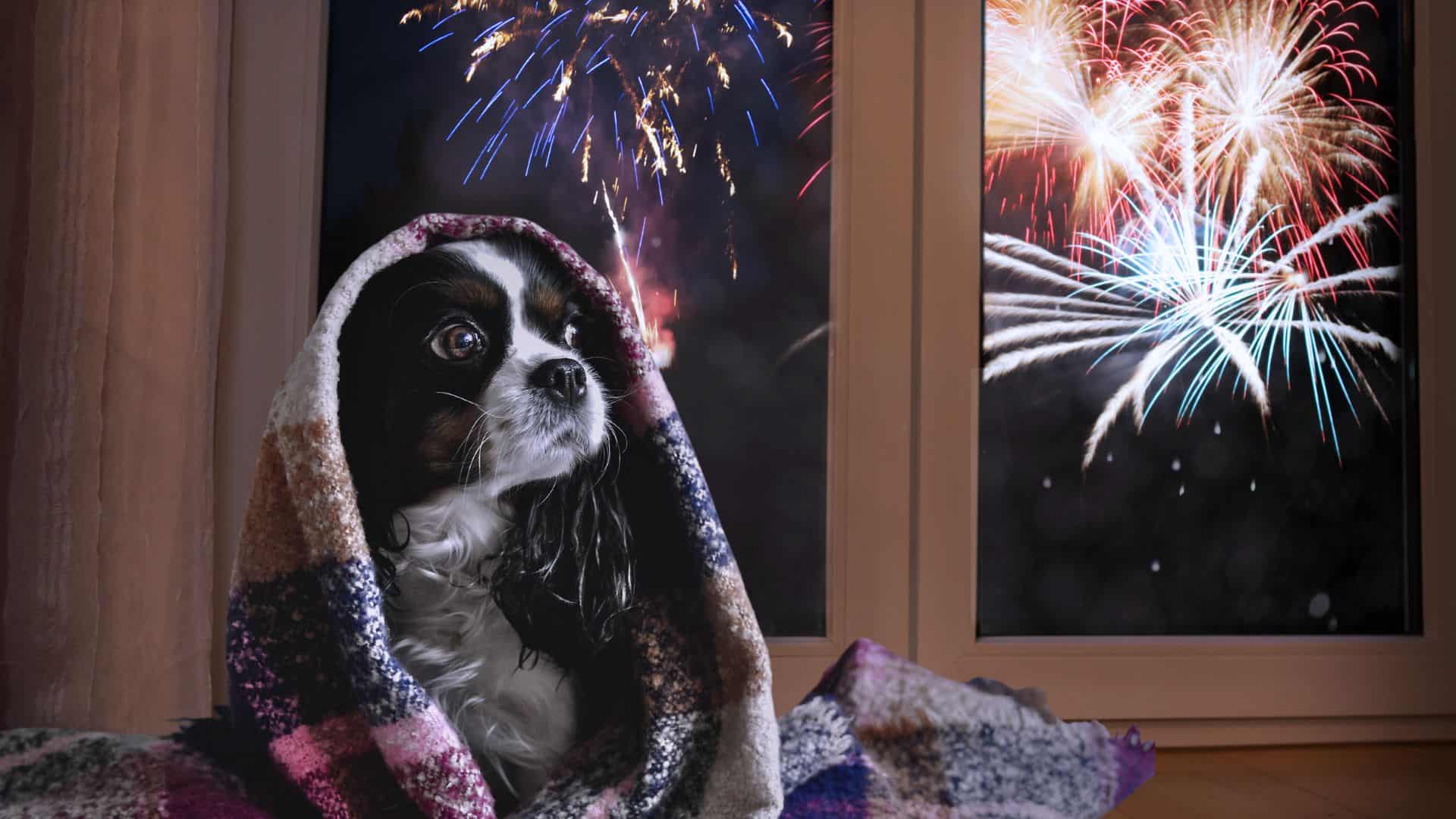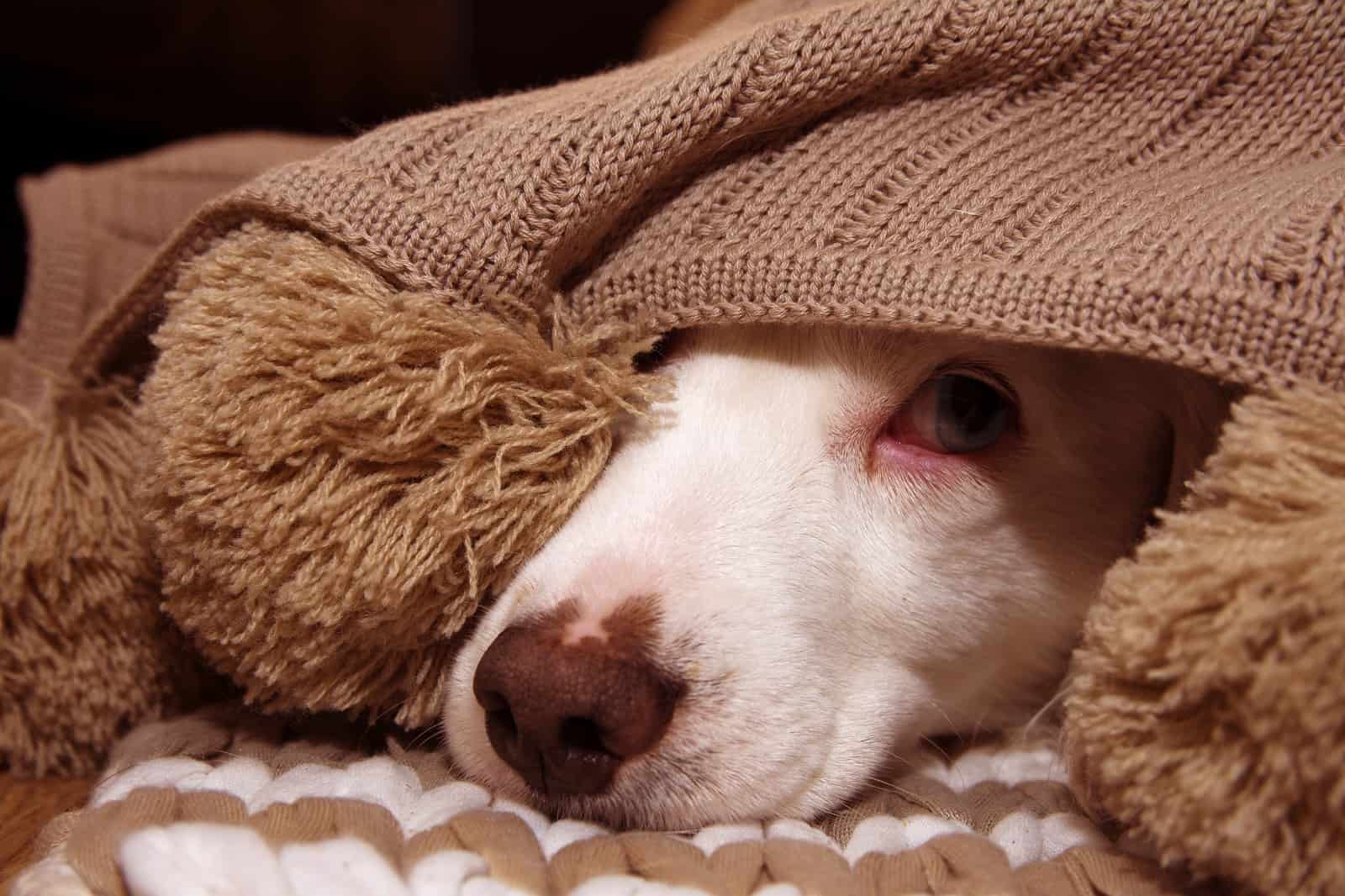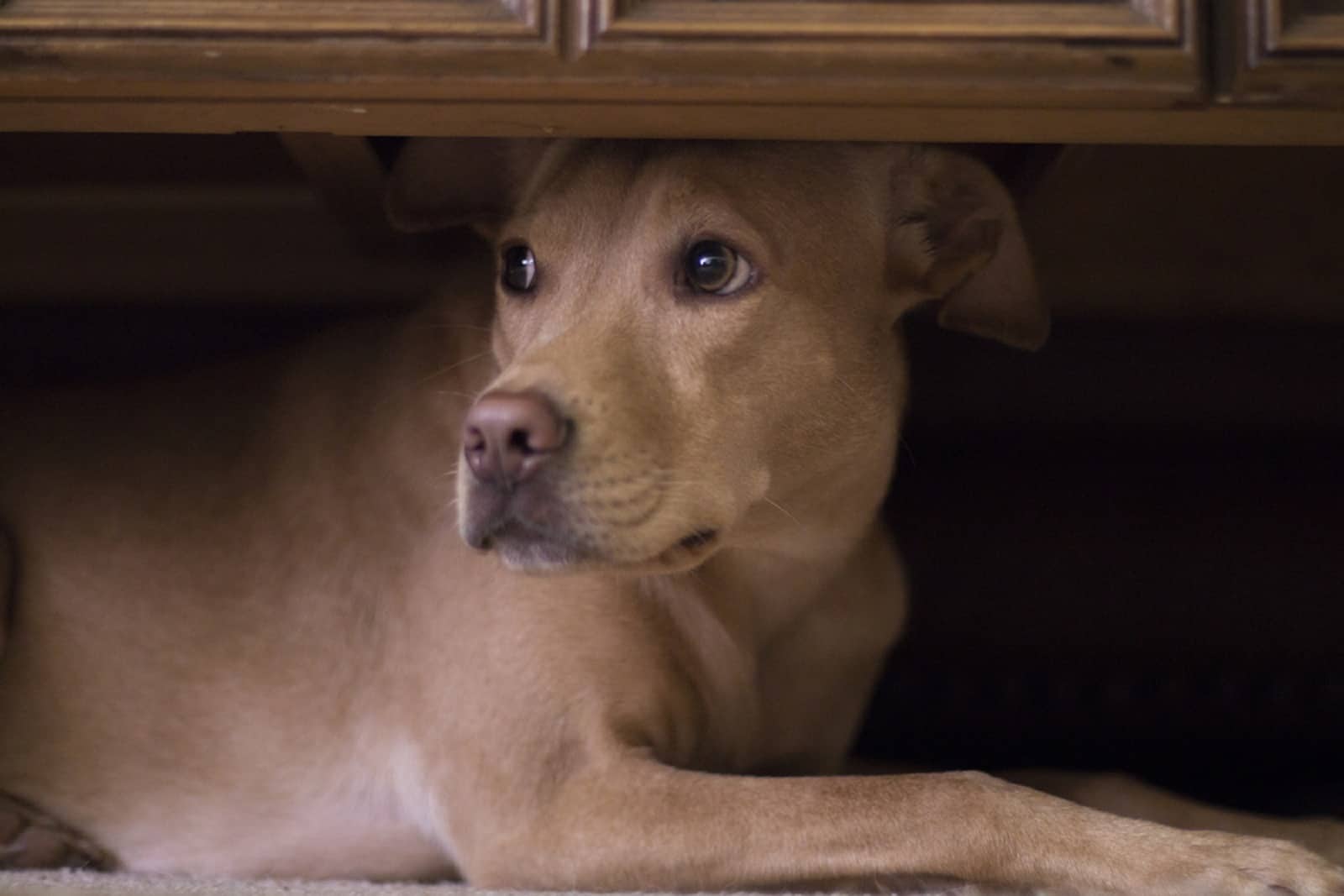
Lễ kỷ niệm pháo hoa có thể là một cảnh tượng rực rỡ đối với con người, nhưng đối với nhiều, chúng là một cơn ác mộng tuyệt đối.
Đêm giao thừa và ngày thứ tư của tháng Bảy là hai ngày lễ lớn, nơi những tia sáng rực rỡ và những tiếng nổ lớn tràn ngập không khí, tất cả trong khi mọi người cổ vũ và kinh ngạc trước những sáng tạo tuyệt vời trên bầu trời.
Mặt khác, những người bạn lông lá của chúng ta hoặc thu mình lại và run rẩy hoặc điên cuồng cố gắng thoát khỏi tiếng pháo hoa. Trong bài viết này, tôi cố gắng đi sâu vào thế giới tâm lý học chó để khám phá những lý do đằng sau nỗi sợ pháo hoa.
Bên cạnh việc tìm hiểu lý do đằng sau hành vi chó khá phổ biến này, tôi cũng sẽ cung cấp cho bạn một số mẹo và chiến lược thực tế mà bạn có thể thực hiện để làm dịu sự lo lắng và biến sự xuất hiện đáng sợ này thành một trải nghiệm thoải mái hơn.
Hiểu lý do tại sao chó sợ pháo hoa

Chó có khuynh hướng tự nhiên là sợ tiếng ồn lớn và những chùm ánh sáng đột ngột.
In 2013, the School of Clinical Veterinary Science at the University of Bristol conducted a study on behavioral signs of fear and anxiety in pet dogs on exposure to loud noises.
The researchers found that almost half of the responding dog owners reported that their dog showed typical signs of fear when exposed to loud noises such as fireworks, thunder, or gunshots. [1]
Dr. Gary Richter, D.V.M., says, “Fireworks create loud and unfamiliar noises that the dog does not understand, and they perceive them as signs of danger.”
The loud sounds of fireworks can trigger the dog’s fight-or-flight response, or in most cases, a natural reaction to run or hide, and try to find a safe haven.
This kind of behavior is so common in dogs that over the years, July 5th, the day after the biggest fireworks display in the country, has become the busiest day for animal shelters.
The new infographic from 2015 shows that animal control officials from all over the country have reported a 30% increase in pet loss each year between the 4th and 6th of July. [2]
Fireworks Are Unpredictable
Although to we humans, fireworks for holidays such as New Year’s and the Fourth of July are normal and very much predictable, but to our dogs, they are not.
They don’t have the ability to know when such things are going to happen, which results in even more fear.
Fireworks Are Loud
It is well known that dogs and many other animals have much better hearing than humans. Dogs can hear nearly twice as many frequencies than humans, and frequencies that are far too high-pitched for us.
Moreover, they can hear sounds that are four times further away, so they’ll often hear things that you can’t. If fireworks are loud to you, then you can imagine how much louder they are to your furry friends.
Fireworks Are Fearsome
As I have already mentioned, the loud sounds of fireworks, combined with unfamiliarity and unpredictability, can easily trigger a fight-or-flight response. Your dog might react by barking at it, but in most cases, it will be so terrified that it will try to run away and hide.
Some other signs of anxiety related to the fear of fireworks and loud sounds include trembling, panting, loss of appetite, inability to relax, uncontrollable shaking, and even having accidents in the house.
Coping With Canine Fear

Fireworks can be very stressful, but thankfully, there are some things that you can do to prevent the fear and ensure a calmer and more comforting experience for your beloved four-legged companion.
- Protect your pet even before the fireworks begin – Make sure that your dog is microchipped and wearing a collar with ID tags, and that the security information is up to date.
- Try to act normal – Try to act as normal as possible because dogs take a lot of cues from you and their surroundings. If you’re acting out of the ordinary, it may only increase their anxiety.
- Keep your dog inside – During fireworks, it is very important to keep your dogs inside the house because it decreases the chance of them running away. Also, try to mask the outside noise by keeping the windows closed and turning on the TV.
- Make your dog feel safe/create a safe place – This TikTok creator has come up with some great ways to keep their rescue dog feeling safe, such as creating a safe and quiet room, using a comfort blanket, giving their dog his favorite treats, and purchasing some quiet ears.
- Desensitize – This is a process that you should start way before any fireworks-related holidays. It basically means that you try to get your dog used to these kinds of sounds slowly over time. For example, you can start by playing some fireworks sounds for your dog at a low level and then increasing the sound slowly over time.
Not all dogs are scared of fireworks, but the truth is that the majority of them are. Try not to ignore it, and address your dog’s fear and anxiety before it is too late.
Hãy chắc chắn rằng của bạn được an toàn và có một kỳ nghỉ lễ tuyệt vời.
Đọc tiếp theo: Chó có thể sợ 10 điều này và nó rất vui nhộn
Tham khảo:
[1] Emily J. Blackwell, John W.S. Bradshaw, Rachel A. Casey. Phản ứng sợ hãi với tiếng ồn ở chó nhà: Tỷ lệ, các yếu tố nguy cơ và đồng thời xảy ra với các hành vi liên quan đến nỗi sợ hãi khác.
Khoa học hành vi động vật ứng dụng, Tập 145, Số 1–2, 2013, 15-25, ISSN 0168-1591, DOI
[2] PetAmberAlert.com. (2018, ngày 28 tháng 6). Đồ họa thông tin mới: Nhiều thú cưng bị mất vào ngày 4 tháng 7 hơn bất kỳ ngày nào khác trong năm. Tin tức PR.